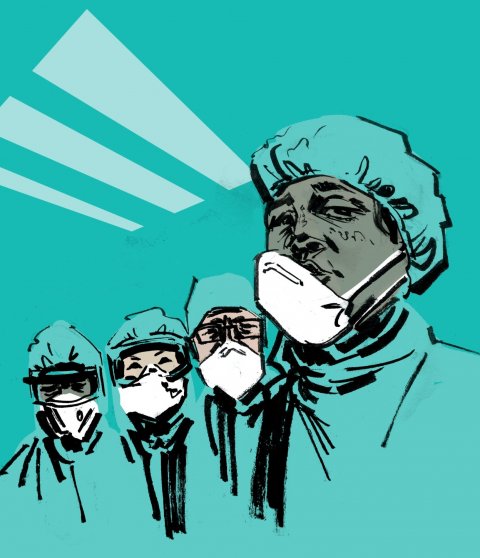News • Growth segment focus, resource optimization, massive restructuring
Healthcare experts: 2020 will be 'unforgiving but transformational'
Frost & Sullivan’s recent analysis, Post-Pandemic Global Healthcare Market Outlook, 2020, forecasts that 2020 will be an unforgiving but transformational year for the healthcare industry.

Image source: Unsplash/United Nations COVID-19 Response
As the world grapples with a global emergency caused by the COVID-19 pandemic, the healthcare industry is expected to witness a drop in growth from 5.3% to 0.6% in 2020, with revenues remaining below the $2 trillion mark. "While the life sciences segment seems to be surviving and thriving, in certain scenarios, medical technologies and imaging are expected to be hit the hardest. Elective procedures being on hold and delayed or prolonged procurement of capital equipment will have a negative impact on revenue, from $413.9 billion to $377.1 billion for medical devices and from $31.5 billion to $18.1 billion for imaging equipment,” said Unmesh Lal, Transformational Health Program Manager. “Additionally, with telehealth transforming care delivery and health IT enhancements in analytics and interoperability, digital health will continue to thrive at a growth rate of 7.9% in 2020.”
Lal added: "While the short-term demand for testing and the race to find a vaccine intensifies, governments are reallocating budgets to finance healthcare services and assessing the feasibility of immunity passports, mass vaccinations, and scaling up of contact tracing. Moving forward, healthcare IT companies such as Microsoft, Optum, Intel, and AWS are betting big on enterprise-grade AI platforms that predict pandemics, forecast patient volume across providers, authenticate reimbursement, and drive general well-being of the insured population through medication management and self-care enablement."
In light of the lessons learned from the pandemic and the changing economic and business scenario, Frost & Sullivan has re-visited predictions, identified top growth opportunities, and analyzed risk-mitigation measures adopted by companies to survive the remainder of 2020, including:
- The KSA, UAE and Indian telehealth markets have reached a tipping point with growth of more than 200% during the pandemic. Virtual consultations by healthcare professionals will become the mainstream care delivery model post-pandemic. However, reimbursement, training physicians, and platform scalability will be the key to recalibrating telehealth.
- Informatics and artificial intelligence (AI) solutions addressing workflow automation and operational analytics will witness 100% growth in 2020. For instance, GE Healthcare's industry-first, FDA-cleared Critical Care Suite AI tool will help radiologists prioritize critical cases. The resumption in imaging for the backlog of elective procedures in Q3 and Q4 will result in teleradiology and AI-based solutions gaining from new investments. Scale-up in capacity, flexible payment options, and redistribution of the workload will accelerate partnerships.
- The United States will have an excess of 100,000 ventilators, while Western Europe will purchase another 30,000 to 50,000 ventilators through the end of 2020. This uneven distribution across regions will redefine non-hospital and home critical care models, while embedded analytics systems will revive the mature monitoring devices segment post-pandemic. Resmed has launched a remote monitoring solution for ventilators in the US and Europe through its cloud-based AirView™ platform for homecare.
- Traditional models of in vitro diagnostics (IVD) testing in a healthcare setting are unable to meet unprecedented demand. By the end of 2020, the $5 billion PoCT infectious diseases market will drive the impending change in service models, with alternate testing sites like pharmacies becoming permanent ecosystem participants. CVS and Walgreens have begun building the infrastructure to offer IVD testing at their locations.
- By the end of 2020, 33% of global clinical trials will be disrupted, putting $3 billion in new product revenues at risk. Disrupted clinical trials and the subsequent delay in drug launches will pave the way for fully virtual trials, and hybridization of patient recruitment, retention, and monitoring will become all-pervasive.
Source: Frost & Sullivan
17.07.2020







